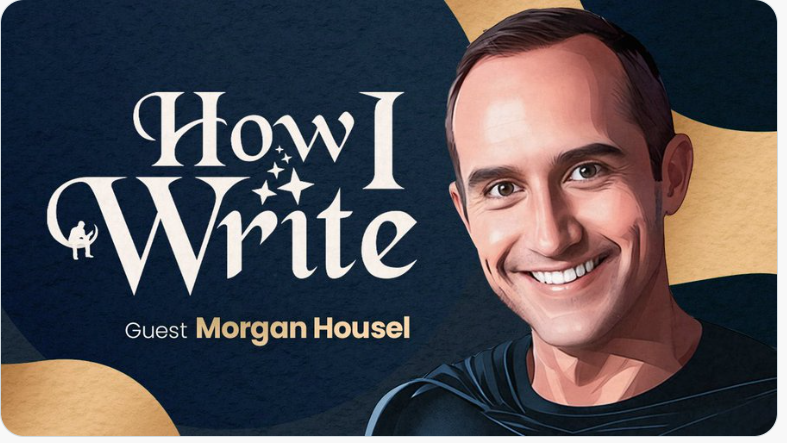
Source: x.com
This post is one of the best I have read regarding writing essentials.
I’d like to express my heartfelt thanks to David Perell, a “Writing Guy”
The full text is as follows:
Morgan Housel has written 4,000 blog posts and sold 4 million copies of The Psychology of Money.
As a writer, he’s the best storyteller I know too.
Here are his principles for writing:
1. Leave out the parts that readers tend to skip.
2. Writing is an efficiency game. Whoever says the most stuff in the fewest words wins.
3. You have five seconds to catch somebody’s attention on the Internet. If you didn’t catch them with the headline or in the first two sentences, they’re gone.
4. If you’re stuck on a piece, go for a walk.
5. If an idea comes to you while you’re out walking, email it to yourself immediately.
6. People don’t remember books; they remember sentences.
7. A good story is like leverage for ideas. An idea on its own might be boring, but if you tell a good story about someone interacting with that idea, you can get people to nod their heads and pay attention.
8. Great writing begins with great reading.
9. If you want to write better and more memorable sentences, ask yourself: “If somebody was reading this on Kindle, would they highlight this sentence?” If the answer is no, consider removing it.
10. Everyone should write. Why? Because everyone is full of ideas they’re not aware of. This means they’re also unaware of the value of their ideas, and this value can only be unlocked via writing.
11. Start with one brave sentence and see where it goes.
12. Big words mask little thoughts. They’re an attempt to fool the reader into thinking you’re smart when you have nothing smart to say.
13. Writing for others is work, and it shows. Writing for yourself is fun, and it shows.
14. Morgan calls this Selfish Writing: write to solve your own problems, and the audience will get pulled in because of your emotional involvement. But if you pander to the audience, they will sense your lingering indifference, and leave.
15. The Power Law of Success: if you do 30 things, 29 of them are going to be irrelevant. One of them will completely change everything. Keep writing—volume is your friend.
16. Most books, even by proven authors, are flops. Mark Twain wrote 28 novels. You haven’t heard of most of them, but that doesn’t matter because he wrote two classics: “The Adventures of Tom Sawyer” and “Adventures of Huckleberry Finn.”
17. Mark Twain used to read aloud to his family and watch their reactions. If he saw them getting bored, he’d cut that part out. If he saw them getting excited, he’d double down on that section.
18. Success takes time. Don’t rush it. Morgan spent 14 years as a professional writer before he published his first book. In that time, he wrote more than 4,000 blog posts.
19. Morgan tells the story of two trees. One grows in the shade of a mother tree, growing slowly because the sunlight is cut off. The other, planted in a field with no barrier, receives full sunlight and grows faster. But the first one develops denser wood due to the slower rate of growth. There’s a natural growth rate in nature, and in creative pursuits.
20. Make your writing concise.
21. Concise does not mean short. It means a high density of value to words.